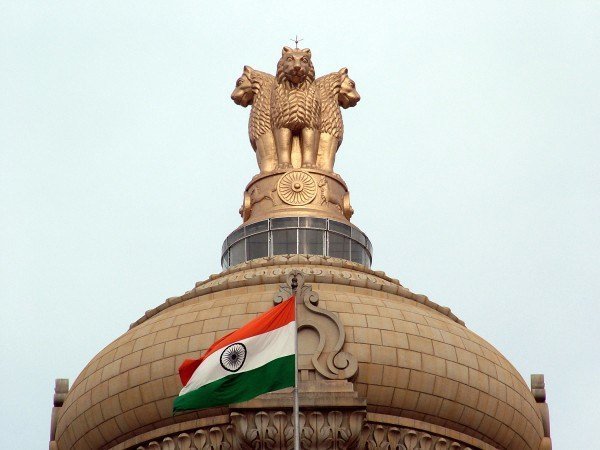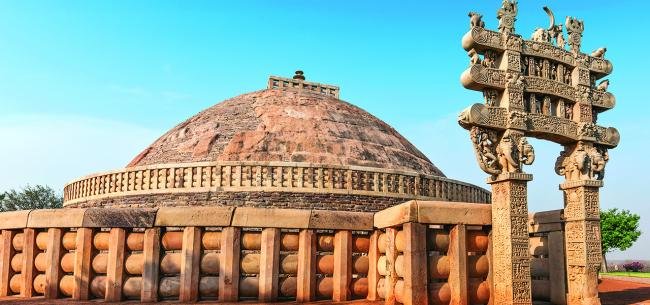


Important Articles of Constitution | Fundamental Rights | Directive Principles of State Policy | important articles for competitive exams | Fundamental Duties | list of important of Indian constitution pdf
Imp Articles of Constitution
The important articles of constitution listed in this page are article 32, 35, 36, 39, 40, 44, 51, 110, 124, 142. Article 36 to 51 comes under Directive Principle of States Policy part of the Indian Constitution.
Article 110 deals with definition of Money bill, article 124 with Establishment and constitution of the Supreme Court, and article 142 with Enforcement of decrees and orders of the Supreme Court and orders as to discovery, etc.
Article 32 of indian constitution
- The right to move the Supreme Court by appropriate proceedings for the enforcement of the rights conferred by this Part is guaranteed.
- The Supreme Court shall have power to issue directions or orders or writs, including writs in the nature of habeas corpus, mandamus, prohibition, quo warranto and certiorari, whichever may be appropriate, for the enforcement of any of the rights conferred by this Part.
- Without prejudice to the powers conferred on the Supreme Court by clauses (1) and (2), Parliament may by law empower any other court to exercise within the local limits of its jurisdiction all or any of the powers exercisable by the Supreme Court under clause (2).
- The right guaranteed by this article shall not be suspended except as otherwise provided for by this Constitution.
Article 35 of indian constitution
- Notwithstanding anything in this Constitution, -
-
Parliament shall have, and the Legislature of a State shall not have, power to make laws -
- with respect to any of the matters which under clause (3) of article 16, clause (3) of article 32, article 33 and article 34 may be provided for by law made by Parliament; and
- for prescribing punishment for those acts which are declared to be offences under this Part,
-
any law in force immediately before the commencement of this Constitution in the territory of India with respect to any of the matters referred to in sub-clause (i) of clause (a) or providing for punishment for any act referred
to in sub-clause (ii) of that clause shall, subject to the terms thereof and to any adaptations and modifications that may be made therein under article 372, continue in force until altered or repealed or amended by Parliament.
Explanation. - In this article, the expression "law in force' has the same meaning as in article 372.
Article 36 of indian constitution
- In this Part, unless the context otherwise requires, “the State” has the same meaning as in Part III.
Article 39 of indian constitution
-
The State shall, in particular, direct its policy towards securing -
- that the citizens, men and women equally, have the right to an adequate means of livelihood;
- that the ownership and control of the material resources of the community are so distributed as best to subserve the common good;
- that the operation of the economic system does not result in the concentration of wealth and means of production to the common detriment;
- that there is equal pay for equal work for both men and women;
- that the health and strength of workers, men and women, and the tender age of children are not abused and that citizens are not forced by economic necessity to enter avocations unsuited to their age or strength;
- 1 [ that children are given opportunities and facilities to develop in a healthy manner and in conditions of freedom and dignity and that childhood and youth are protected against exploitation and against moral and material abandonment.]
- Subs. by the Constitution (Forty-second Amendment) Act, 1976, s. 7, for cl. (f) (w.e.f. 3-1-1977).
Article 40 of indian constitution
- The State shall take steps to organise village panchayats and endow them with such powers and authority as may be necessary to enable them to function as units of self-government.
Article 44 of indian constitution
- The State shall endeavour to secure for the citizens a uniform civil code throughout the territory of India.
Article 51 of indian constitution
- The State shall endeavour to -
- promote international peace and security;
- maintain just and honourable relations between nations;
- foster respect for international law and treaty obligations in the dealings of organised peoples with one another; and
- encourage settlement of international disputes by arbitration.
Article 110 of indian constitution
- For the purposes of this Chapter, a Bill shall be deemed to be a Money Bill if it contains only provisions dealing with all or any of the following matters, namely :-
- the imposition, abolition, remission, alteration or regulation of any tax;
- the regulation of the borrowing of money or the giving of any guarantee by the Government of India, or the amendment of the law with respect to any financial obligations undertaken or to be undertaken by the Government of India;
- the custody of the Consolidated Fund or the Contingency Fund of India, the payment of moneys into or the withdrawal of moneys from any such Fund;
- the appropriation of moneys out of the Consolidated Fund of India;
- the declaring of any expenditure to be expenditure charged on the Consolidated Fund of India or the increasing of the amount of any such expenditure;
- A Bill shall not be deemed to be a Money Bill by reason only that it provides for the imposition of fines or other pecuniary penalties, or for the demand or payment of fees for licences or fees for services rendered, or by reason that it provides for the imposition, abolition, remission, alteration or regulation of any tax by any local authority or body for local purposes.
- If any question arises whether a Bill is a Money Bill or not, the decision of the Speaker of the House of the People thereon shall be final.
- There shall be endorsed on every Money Bill when it is transmitted to the Council of States under article 109, and when it is presented to the President for assent under article 111, the certificate of the Speaker of the House of the People signed by him that it is a Money Bill.
Article 124 of indian constitution
- There shall be a Supreme Court of India consisting of a Chief Justice of India and, until Parliament by law prescribes a larger number, of not more than 1[seven] other Judges.
- Every Judge of the Supreme Court shall be appointed by the President by warrant under his hand and seal 2 [on the recommendation of the National Judicial Appointments Commission referred to in article 124A] and shall hold office until he attains the age of sixty-five years:
3 [* * * * *]
4 [Provided that] -- a Judge may, by writing under his hand addressed to the President, resign his office;
- a Judge may be removed from his office in the manner provided in clause (4).
- A person shall not be qualified for appointment as a Judge of the Supreme Court unless he is a citizen of India and -
- has been for at least five years a Judge of a High Court or of two or more such Courts in succession; or
- has been for at least ten years an advocate of a High Court or of two or more such Courts in succession; or
- is, in the opinion of the President, a distinguished jurist.
Explanation II. - In computing for the purpose of this clause the period during which a person has been an advocate, any period during which a person has held judicial office not inferior to that of a district judge after he became an advocate shall be included. - A Judge of the Supreme Court shall not be removed from his office except by an order of the President passed after an address by each House of Parliament supported by a majority of the total membership of that House and by a majority of not less than two-thirds of the members of that House present and voting has been presented to the President in the same session for such removal on the ground of proved misbehaviour or incapacity.
- Parliament may by law regulate the procedure for the presentation of an address and for the investigation and proof of the misbehaviour or incapacity of a Judge under clause (4).
- Every person appointed to be a Judge of the Supreme Court shall, before he enters upon his office, make and subscribe before the President, or some person appointed in that behalf by him, an oath or affirmation according to the form set out for the purpose in the Third Schedule.
- No person who has held office as a Judge of the Supreme Court shall plead or act in any court or before any authority within the territory of India.
- Now “thirty-three” vide the Supreme Court (Number of Judges) Amendment Act, 2019 (37 of 2019), s. 2 (w.e.f. 9-8-2019).
- Subs. by the Constitution (Ninety-ninth Amendment) Act, 2014, s. 2, for "after consultation with such of the Judges of the Supreme Court and of the High Court in the States as the President may deem necessary for the purpose" (w.e.f. 13-4-2015). This amendment has been struck down by the Supreme Court in the case of Supreme Court Advocates-on-Record Association and another Vs. Union of India in its judgment dated 16-10-2015, AIR 2016 SC 117.
- The first proviso was omitted by s. 2, ibid. The proviso was as under :-
"Provided that in the case of appointment of a Judge other than the Chief Justice, the Chief Justice of India shall always be consulted:" (w.e.f. 13-4-2015). This amendment has been struck down by the Supreme Court in the case of Supreme Court Advocates-on-Record Association and another Vs. Union of India in its judgment dated 16-10-2015, AIR 2016 SC 117. - Subs. by s. 2, ibid. for "provided further that" (w.e.f.13.4.2015).This amendment has been struck down by the Supreme Court in the Supreme Court Advocates-on-Record Association and another Vs Union of India judgment dated 16-10-2015, AIR 2016 SC 117.
- Ins. by the Constitution (Fifteenth Amendment) Act, 1963, s. 2 (w.e.f. 5-10-1963).
Article 142 of indian constitution
- The Supreme Court in the exercise of its jurisdiction may pass such decree or make such order as is necessary for doing complete justice in any cause or matter pending before it, and any decree so passed or order so made shall be enforceable throughout the territory of India in such manner as may be prescribed by or under any law made by Parliament and, until provision in that behalf is so made, in such manner as the President may by 1order prescribe.
- Subject to the provisions of any law made in this behalf by Parliament, the Supreme Court shall, as respects the whole of the territory of India, have all and every power to make any order for the purpose of securing the attendance of any person, the discovery or production of any documents, or the investigation or punishment of any contempt of itself.
- See the Supreme Court (Decrees and Orders) Enforcement Order, 1954 (C.O. 47).
All articles of Indian constitution
Fundamental Rights of Indian Constitution Article 12 to 35
Fundamental duties of Indian Citizens
Directive Principles of State Policy
| Horoscope | Bollywood |
| Technology | General Awareness |









